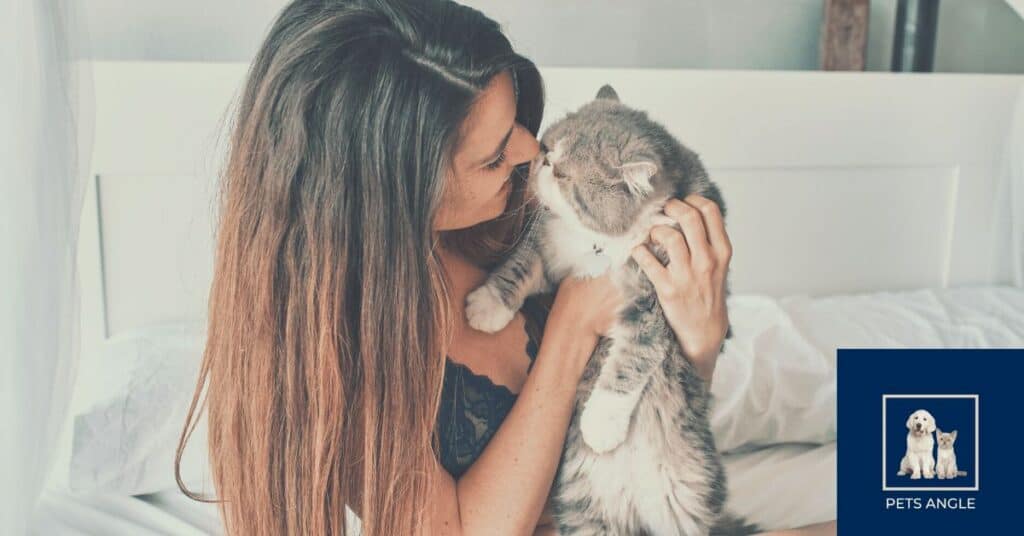Cat hair does not harm humans, but some are allergic to cat excrement. Fur, saliva, and pee, not the cat’s coat, are the sources of allergies that make some people unpleasant.
Snoozing with our gorgeous feline may appear as harmless as it seems, but some risks are involved. As a result, understanding the risks will help immensely safeguard us as cat owners.
Pet dander can cause eye irritation and runny nose, and it can also damage your respiratory system.
When you inhale pet hair or dander, the microscopic hairs and other dangerous elements can move down your lungs and stay there. Inhaling cat hair can aggravate the lining of the lungs and damage the airways over time, leading to a chronic respiratory ailment.
Ringworm can be spread to humans via direct contact with the fur of cats and dogs, especially kittens. Ringworm spores can live for lengthy periods on carpets, furniture, and other surfaces, causing illnesses. People who comb cat hairs can also spread ringworm directly or through personal effects like combs.
Inhaling Cat Hairs Can Cause Serious Health Problems
A common inquiry is about what one should do if one ingests cat hair.
Asthma can be triggered by inhaling dry flakes and fur from our adorable felines.
If you are allergic to cats and cat allergens enter your lungs, the allergens can interact with antibodies to induce symptoms. Respiratory challenges, coughing, and wheezing are some of the symptoms.
In addition, cat allergies promote nasal inflammation, resulting in sinus pain, pressure, and headaches.
Because of its small size, pet hair and related dander impact air quality. Because dander is so light, it can linger in the air for an exceptionally long time.
Common Ailments Traceable to Inhaling Cat Hair
Bacterial transmission, parasite diseases, allergies, sneezing and nasal congestion, difficulty breathing, and coughing fits are all potential threats to people from cat hairs.
Can You Get Sick from Swallowing Cat Hair?
Although cat hair does not taste pleasant, I can promise you that swallowing a small amount of it will not harm you, especially by accident.
Unless you consciously aim to consume as much hair as possible, it is not dangerous.
You’ll most likely gag and possibly vomit. It won’t hurt you unless you’re allergic to felines, and it keeps itself clean.
Ingesting a big amount of hair over a long length of time, on the other hand, might result in the growth of a thick, dense hairball in your stomach called trichobezoars, which may result in severe abdominal pain and other symptoms.
Cat Hair Related Hazards and How to Avoid Them
While it is established that some risks are associated with snuggling our feline pals, this is, however, not enough justification for ditching these loyal animals.
The Schedule of activities below can help to keep your pet while also helping your lungs:
- Vacuum, dust, and clean the house regularly.
- Remove the carpets since they collect pet dander and other irritants.
- Bathing and grooming your cat decreases dander, shedding, and
- saliva residue.
- Keep your dogs out of your chamber.
- In your apartment, use an air purifier.
- Keeping non-fur-bearing cat breeds

